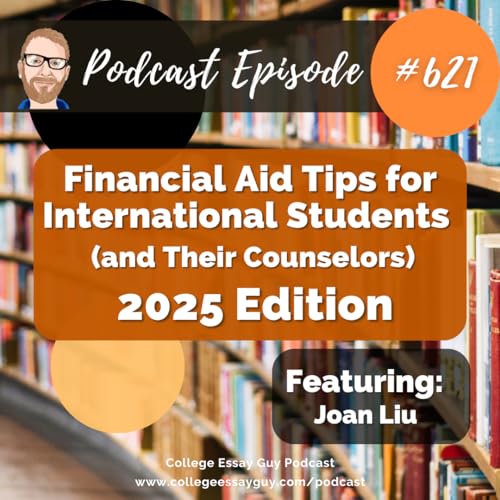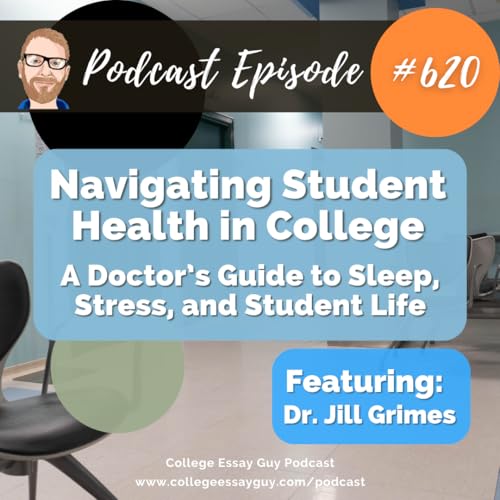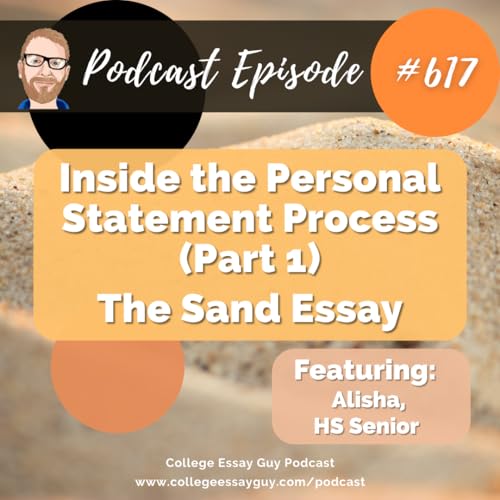In today's episode, I'm joined by my long-time colleague, and our Chief People Officer here at CEG, Sandy Longworth. Sandy has worked as a therapist, a researcher, college counselor — among other things — and has spent years studying the role that narrative storytelling plays in how teens develop their identities.
Important note: While Sandy trained as a therapist, and we do talk a lot about therapy in our conversation, I want to make clear that I do not hold that college counseling and essay coaching — or what we do at College Essay Guy — to be therapy. It isn't. As college counselors and essay coaches — and I'm speaking about us as a profession here — we help students discover the skills, qualities, values, and interests they'll bring to a college campus… and then express those parts of themselves in writing.
Having said that, when I was first introduced to Narrative Therapy in 2012, I was struck by how some of its techniques — like reframing, for instance, which involves finding alternate perspectives on a set of events, something sometimes called "re-storying" — overlap with some of the things that happen in essay coaching sessions… and that's the territory Sandy and I explore in this conversation.
In this episode, Sandy and I get into:
- How adolescence is a key time for identity development, how this process unfolds and why it's so significant for personal statements
- What is narrative identity theory and how do our stories shape who we think we are and can be?
- How can narrative therapy techniques help students develop and showcase these qualities?
- What are some narrative therapy exercises students can use to reflect on their experiences and write authentically?
- And more
Sandy Longworth is a proud first-generation college graduate of the University of Wisconsin-Madison who earned her M.S. in Marriage and Family Therapy from Seattle Pacific University, completed her doctoral coursework in Child and Family Studies from UW-Madison, and completed her School Counseling certificate at Northern Illinois University.
There's a little more to her bio, but I'll let her share that with you directly — hope you enjoy.
Play-by-Play:
- 3:05 – Sandy shares her background and some of her roles and identities
- 9:46 – Why is adolescence such a key time for identity development, and how does that connect to the personal statement?
- 12:20 – What role does narrative storytelling play in how students think about and develop their identities?
- 24:26 – How can narrative therapy techniques help students develop and showcase these qualities in their college application?
- 39:32 – What are some practical ways counselors and students can bring narrative therapy techniques into the personal statement process?
- 41:34 – Sandy leads Ethan through a narrative exercise
- 53:41 – Ethan and Sandy share impact and reflections
- 1:01:16 – How could narrative therapy ideas inform a montage-style essay?
- 1:10:10 – What does Sandy love about this work?
- 1:13:32 – What resources are available to learn more about narrative therapy?
- 1:16:15 – Closing thoughts
Resources:
- The Dulwich Centre
- The Values Exercise
- CEG's College Admission Nutrients (aka The Great College Application Test)
- College Essay Guy's Personal Statement Resources
- College Essay Guy's College Application Hub
 Dec 23 20251 h
Dec 23 20251 h 1 h y 18 m
1 h y 18 m 1 h y 4 m
1 h y 4 m Nov 11 202555 m
Nov 11 202555 m 43 m
43 m 50 m
50 m Oct 14 202552 m
Oct 14 202552 m Sep 30 20251 h y 17 m
Sep 30 20251 h y 17 m
